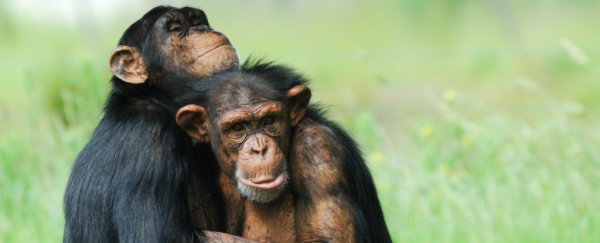It's a fact of human nature that we are all titillated on some level by the mere notion of sex, and chances are many of us spend a good portion of our free time either having sex or thinking about it.
Because of this, it's only natural to be curious about how the whole process takes place in other creatures. And if my research in animal sex biology has taught me anything, it's that, on the whole, human sex is pretty uneventful compared to most of our wild counterparts.
Here are some astounding facts about sex in the animal kingdom:
1. You can't have non-consensual sex with an elephant
Elephants belong to a unique group of mammals - also including hyenas - where females have an externally elongated clitoris that looks just like a penis. It's called a pseudo-penis, and its existence means that an observer cannot tell the sex of the animal by simply looking at their external genitalia.
This also means that in order for a male to copulate with a female, she must first retract her pseudo-penis inside of her own body (picture turning a sock inside out). If she does not do this, he's out of luck.
2. Love takes sacrifice
Male Tidarren spiders have penises that are so monstrous, dragging them around takes a lot of time and energy. So after they have successfully mated, they just rip them right off.
Once they are successfully transformed into eunuchs, they then have a new lease on life - and enough stamina to guard their mates from the interested eyes of other suitors. It all comes, sadly, at the cost of never being able to have sex again.
3. It's hard to find love in the big city
Unlike humans, who tend to have a better chance of finding a mate in densely populated areas, birds in big cities have trouble finding mates because their seductive mating calls can't be heard over traffic and the general cacophony of urban life.
4. Fifty Shades has nothing on the animal kingdom
Due to the harsh reality that - biologically speaking, -sperm is ultra-abundant and cheap, whereas eggs are rare and expensive, males sometimes deploy extreme measures to get their potential female partners to submit to their advances.
Depending on the species, this can include eye clamps in male water striders, piercing penile spines, or even a neurophysiological hijack.
5. You've got to love the one with you're with
Female chimps, like female humans, are more likely to experience an orgasm when having sex with a preferred partner.
And social status means everything - in a study of Japanese macaques, the highest frequency of female orgasms was found among pairs formed by high-ranking males and low-ranking females, and the lowest frequency of orgasms was found in pairs formed by low-ranking males and high-ranking females.
6. Never underestimate the impact of a mother
Even once their offspring are grown, mother orcas continue to protect their adult sons from encounters with other whales. But they don't do the same for their adult daughters.
There are valid biological reasons for this kind of sex-based favouritism - daughters bring more work to the group via their own offspring, for example.
And the males seem to really need all the help they can get. A recent study found that in the year following their mother's death, adult male killer whales were three times more likely to die themselves.
7. Females can do just fine without a mate
Female damselflies have a storage organ within their own bodies that can store sperm, and they can obtain all the sperm they will need for their entire reproductive lifespan in just one or two copulations.
8. Safe sex is smart sex
Even the animal kingdom isn't immune from sexually transmitted diseases. A nasty STD can afflict even the cutest creatures. Just ask any koala in Australia, where nearly all of the species in the country have been infected with a strain of chlamydia.
But the good news is help is now on the way, thanks to this new drug candidate.
Carin Bondar received a PhD in population ecology from the University of British Columbia.
She is the author of the book, Wild Sex: The Science Behind Mating in the Animal Kingdom, based on her popular web series of the same name, which has received over 50 million views online.
